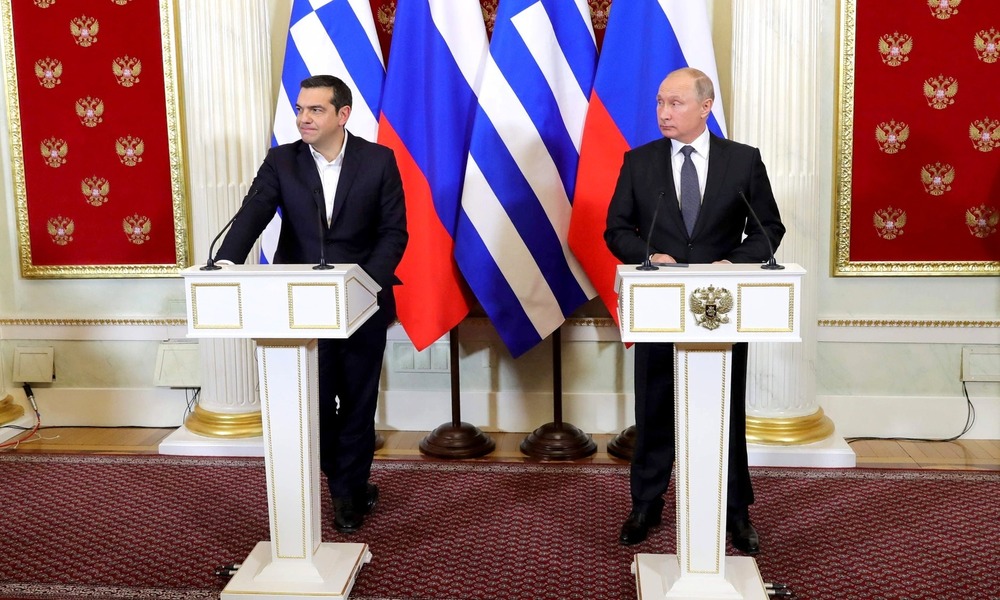RUSSIA MONITOR
Date: 26 December 2018
Russia Tempts Greece with Gas Promises
Three years passed since Greek Prime Minister Alexis Tsipras paid a visit to Moscow. Furthermore, traditional close ties between Russia and Greece have recently deteriorated; it was the Kremlin’s fault, though, as Athens is upset with the ever-growing Russian-Turkish defense alliance, including the S-400 system deal. Nonetheless, a crisis sparked in the summer of 2018 when Greece expelled Russian diplomats accused of meddling in the state policy. Tsipras’s trip to Russia seems to prove that both sides are now seeking to put an end to the bad period in their bilateral relations. Interestingly enough, Russian gas may emerge as a solution to the problem.

Russian President Vladimir Putin announced at the meeting with Greek Prime Minister on December 7 that Moscow could potentially consider including Greek companies in its infrastructure projects envisaging gas supplies to Europe via the southern route. First and foremost, it is about the Turkish Stream project that envisages the construction of a gas pipeline across the Black Sea to the European part of Turkey while one of its branches may be extended further to EU countries. Back in November, Russia’s state-run gas giant Gazprom completed the construction of the offshore section of the Turkish Stream gas pipeline. According to the Russian leader, one of its branches may supply gas to Turkey while the second string could potentially allow the transit of Russian gas to the countries of Southern and South-Eastern Europe. Greece is proactively interested in taking part in the venture while Alexis Tsipras stated that the European Union “puts obstacles in the extension of the Turkish Stream towards Greece and Italy.” Furthermore, Greek Prime Minister was in favor of letting the Trans-Adriatic Pipeline (TAP) receive Russia’s “blue fuel”, while the line was initially designed to transport Azerbaijani gas to Europe.
Tsipras’s friendly trip to Moscow may thus be perceived as the end of a diplomatic row that came amid Russia’s spying activities in Greece. Putin expressed hope that “this chapter has already been closed” while Athens may restore its trust to Moscow thanks to some steps undertaken by the new head of Russia’s military intelligence service (GRU). Vice Admiral Igor Kostyukov had served as a military attaché to Greece for five years. Now he may be in charge of alleviating a scandal that sparked in August 2018 over Athens’s decision to expel two Russian diplomats while barring two others from entering the country. Before, Russia had allegedly tried to use the Greek Orthodox Church to influence Athens’s policy regarding a deal that would allow Macedonia to change its official name. And yet, this is not the only reason for Greece’s particular concern. Tsipras expressed worry over Moscow’s plans to sell its S-400 air defense system to Turkey.
All texts published by the Warsaw Institute Foundation may be disseminated on the condition that their origin is credited. Images may not be used without permission.














